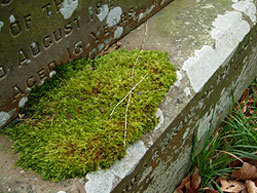|
 |
tormented together by fire.
Athenagorus taught that a person can never die or come to an end; life is ours for always. He taught that we have been made intelligent just for the purpose of continuing life - even if it be in Hell. He also taught that a body is given to the soul, and we are born into this world to pass through this life as two entities. These two are separated at death but, at the resurrection, the body rejoins the soul. He taught that punishment must be given for sins committed in this body and so the body needs to suffer punishment also. During the period of separation from its soul it is said, the body is in the grave. He argued consistently that God made us to live, and therefore we live eternally even though it is a living death in torment. |
What is the fate of the wicked?
The theologian Origen of Alexandria developed another, different view of the fate of the wicked. He postulated that the wicked would be forgiven and restored by God and so in the end all would be saved. There would be universal salvation. Some of his followers believe that even Satan will be saved.
But there was yet another view, that of Irenaeus, who taught that the wicked would be destroyed. All trace of wickedness would be removed from the earth by a devouring fire. |
| Here are the 4 different teachings about the fate of the sinner. |
 |
- Eternal torment
- An ever-burning hell but with a place of purification for those who are not so bad.
- Total restoration for all.
- Utter destruction by fire of everything evil.
|
| These four views give differing options for what will happen to the lost. We all have some sense of justice, and God is a God of justice, but God’s justice is combined with mercy. Today the debate continues, with as much strength of feeling as in the days of the church fathers. What can we believe? |
|
To find answers, let us look at the Word of God. The Bible does speak of hell and fire, but also of destruction and ashes.
How does it all add up?
This pages give the broad Bible principles about so-called hell fir, but a section entitled ‘Please Explain …’ deals individually with those verses and portions of scripture, that lead one to more detailed questions on the subject. |
 |
First of all, the Bible is consistently clear that no-one, good or bad, has a soul that survives death and lives on in a different place. Previous pages have shown a human being to be a single unit. There is no ‘Divine Spark’ within that has immortality independent of the body. That is a pagan concept and one that became attached to Christianity in the days of the early Gnostics. The Bible, which is the Word from God, teaches that all go to the grave and sleep to await the resurrection from death.
Here are some Bible verses that talk about two types of people – a prince, and a number of criminals – the murderer, the adulterer, and the burglar. These |
|
<< Back | Page 1 | Page 2 | More >>
[ Home ][ About Us ][ Lonely Questions ][ Contact Us ]
Copyright © 2008 deathandbeyond.org.uk |
